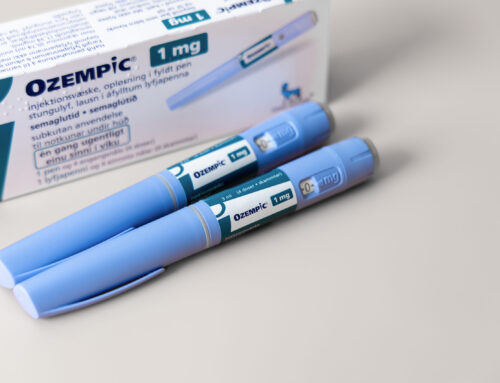A Second Chance to Rewrite Your Story
Have you or someone you love recently faced a DUI or drug arrest? It can feel overwhelming, but it doesn’t have to define your future. Did you know that seeking treatment can not only improve your mental health but also positively impact your legal situation? Now is the time to take control and start anew. This article explores how choosing recovery can turn a difficult situation into an opportunity for growth and healing.
The Legal and Personal Impact of a DUI or Drug Arrest
A DUI or drug-related arrest is often a wake-up call. The legal system may seem intimidating, but its primary goal isn’t just punishment—it’s rehabilitation. Courts and judges often encourage treatment programs because they understand that addressing the root causes of substance use can lead to lasting change.
How the System Supports Your Recovery
- Rehabilitation Over Incarceration: Many courts prefer sentencing individuals to rehab programs instead of jail time.
- Improved Legal Outcomes: Completing a treatment program can show the court your commitment to change, potentially reducing fines, penalties, or even sentences.
- Supportive Probation Plans: Probation often includes conditions for attending therapy or support groups, which can help you stay on track.
The Stigma of Arrests and How to Overcome It
For many, the shame and stigma surrounding a DUI or drug arrest can feel like an additional punishment. It’s essential to understand that these situations do not make you a failure or a bad person. They are opportunities for learning and growth. Society is increasingly recognizing addiction as a medical condition rather than a moral failing. Seeking treatment is a brave step that demonstrates your strength and commitment to change.
Why Treatment is Key to Moving Forward
The Benefits of Rehab for Your Mental Health
When faced with the consequences of an arrest, it’s easy to feel defeated. However, entering a treatment program can help rebuild your confidence and emotional resilience.
- Coping Skills: Learn healthier ways to manage stress and triggers.
- Address Underlying Issues: Therapy can uncover and treat conditions like anxiety, depression, or trauma that often accompany substance use.
- Regain Control: Treatment restores a sense of agency over your life.
Long-Term Advantages of Sobriety
Sobriety doesn’t just help in the short term; it paves the way for long-lasting benefits. Individuals who complete treatment often experience:
- Improved Physical Health: Recovery leads to better sleep, increased energy, and reduced risk of chronic illnesses.
- Stronger Relationships: Healing from addiction allows you to rebuild trust with family and friends.
- Career Growth: Employers value reliability and focus, which sobriety fosters.
Legal Benefits of Completing a Treatment Program
Engaging in a professional rehab program shows the legal system that you are serious about making positive changes. This can:
- Sway the Court’s Decision: Judges are more lenient when they see genuine efforts toward recovery.
- Reduce Sentences: Many states offer diversion programs for first-time offenders who complete rehab.
- Strengthen Your Defense: Your attorney can use evidence of treatment to advocate for lighter penalties.
Steps to Take After a DUI or Drug Arrest
If you’re unsure where to begin, here are actionable steps to take:
- Consult an Attorney: Seek legal advice to understand your options.
- Enroll in a Treatment Program: Choose a reputable facility like Achieve Wellness & Recovery.
- Complete Any Court Requirements: Stay compliant with all legal obligations.
- Attend Support Groups: Joining a group like Alcoholics Anonymous or Narcotics Anonymous can keep you motivated.
- Create a Relapse Prevention Plan: Work with counselors to develop strategies for staying substance-free.
- Engage Your Support Network: Share your journey with trusted friends and family who can encourage you along the way.
Making the Most of Your Time in Treatment
To maximize the benefits of your program, consider the following tips:
- Be Honest: Share openly with your counselors about your struggles.
- Stay Committed: Recovery is a process; be patient with yourself.
- Take Advantage of Resources: Many programs offer career counseling, financial planning, and other support services.
- Celebrate Milestones: Acknowledge your progress, no matter how small.
Now is Not the Time to Give Up
Why You Should Keep Fighting
It’s natural to feel discouraged after an arrest, but this is not the end of your story. Recovery is possible, and the benefits extend far beyond your legal case. Sobriety can lead to:
- Improved relationships with loved ones.
- Better career opportunities.
- Renewed self-confidence and purpose.
How Achieve Wellness & Recovery Can Help
We offer compassionate, evidence-based programs tailored to your needs. From detox to therapy, our team is dedicated to helping you heal and reclaim your life.
We understand the unique challenges that come with a DUI or drug arrest, and we’re here to provide the tools and support you need to overcome them.
The Role of Self-Compassion in Recovery
One often overlooked aspect of recovery is self-compassion. It’s easy to fall into a cycle of guilt and shame after an arrest, but self-blame only hinders progress. Here’s how to practice self-compassion:
- Acknowledge Your Humanity: Everyone makes mistakes; what matters is how you respond.
- Focus on Growth: Treat your arrest as a stepping stone rather than a setback.
- Seek Positive Reinforcement: Surround yourself with people who uplift and encourage you.
Take the First Step Toward a Brighter Future
A DUI or drug arrest doesn’t have to derail your life. Instead, it can be the catalyst for positive change. By choosing treatment, you’re not only improving your mental health but also showing the legal system your commitment to recovery. Remember, the courts want to see you succeed, and so do we.
Achieve Wellness & Recovery is here to guide you every step of the way. Give us a call at (833) 680-0142 to take the first step toward reclaiming your life and building a brighter future.








